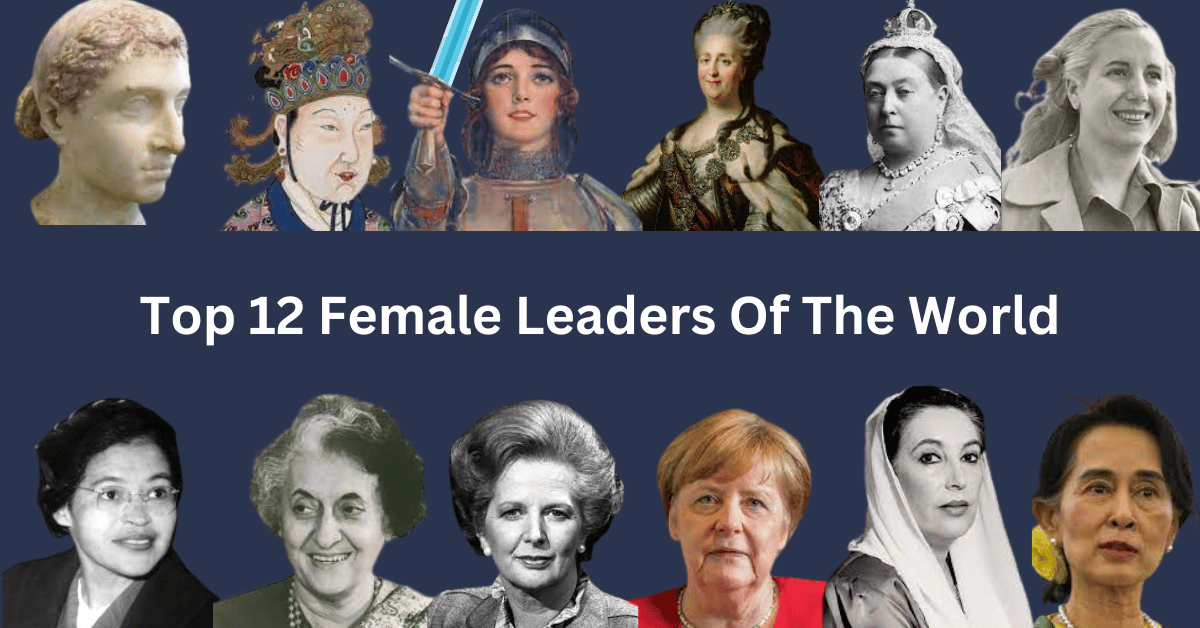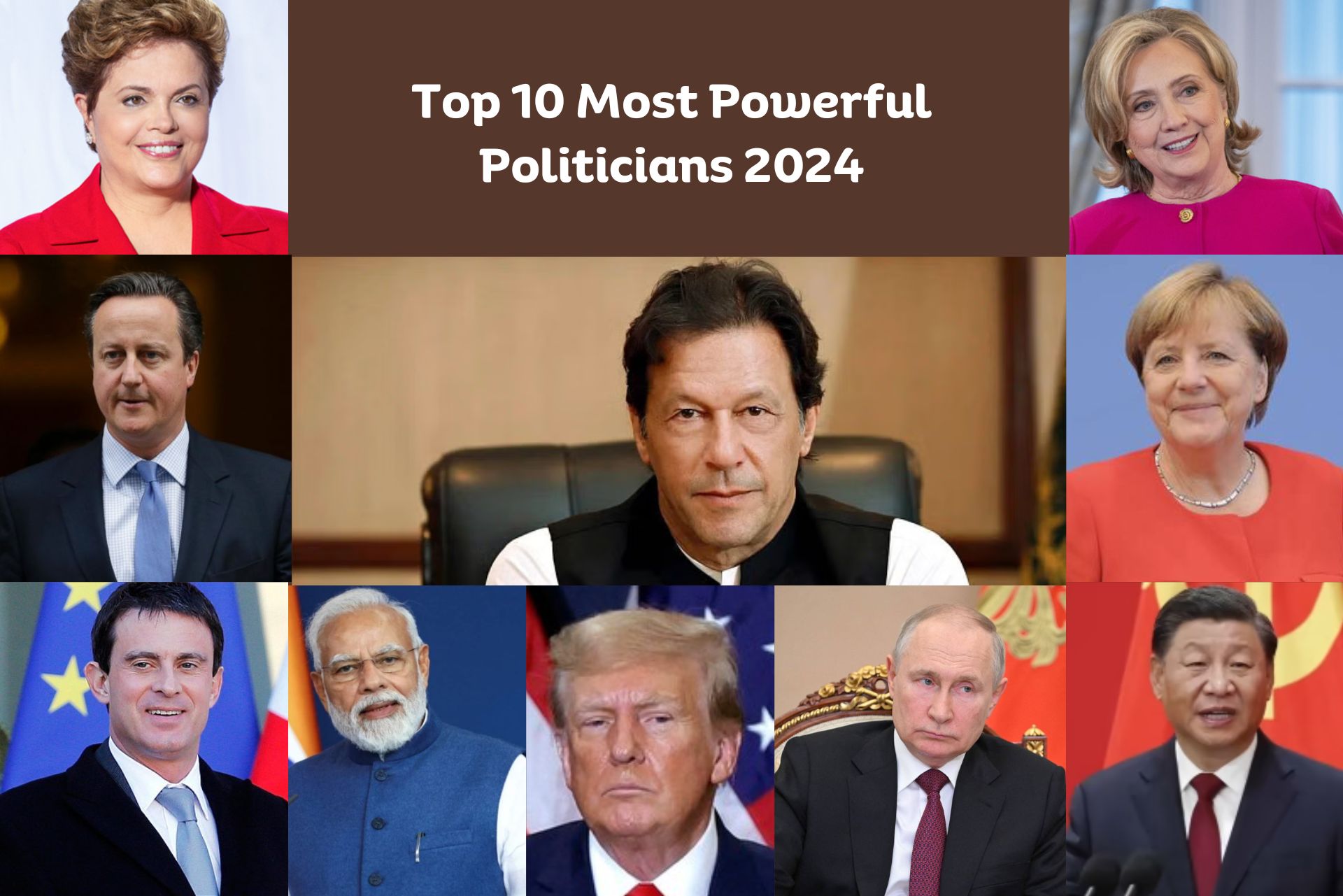Throughout history, there have been remarkable women who defied societal norms and emerged as influential leaders. From queens and politicians to activists and revolutionaries, these ten exceptional women made indelible contributions to their respective countries and left a lasting legacy. In this article, we will explore the lives and achievements of the top 12 famous female leaders of the world, celebrating their trailblazing spirit and impactful leadership.
- 1. Cleopatra VII (Leader of Egypt): The Last Pharaoh
- 2. Wu Zetian (Leader of China): Empress Regnant
- 3. Joan of Arc (Leader of France): The Maid of Orleans
- 4. Catherine II (Leader of Russia): The Great
- 5. Queen Victoria (Leader of England): The Empress of India
- 6. Eva Perón (Leader in Argentina): The First Lady of Argentina
- 7. Rosa Parks (Leader in the United States): Mother of the Civil Rights Movement
- 8. Indira Gandhi (Leader of India): The Iron Lady of India
- 9. Margaret Thatcher (Leader of Britain): The Iron Lady
- 10. Angela Merkel (Leader of Germany): The Chancellor
- 11. Benazir Bhutto (Leader in Pakistan): The Trailblazing Prime Minister Benazir
- 12. Aung San Suu Kyi (Leader of Myanmar): The Icon of Democracy
- Conclusion:
1. Cleopatra VII (Leader of Egypt): The Last Pharaoh
Cleopatra VII, the last active pharaoh of ancient Egypt, possessed exceptional political acumen and charisma. Known for her strategic alliances and cultural influence, Cleopatra’s leadership during a turbulent era established her as a legendary figure in history.
2. Wu Zetian (Leader of China): Empress Regnant
During the Tang Dynasty, Wu Zetian made history as the sole female to ever hold the position of Emperor in China. Her strong leadership and astute decision-making contributed to political stability and cultural advancement, leaving an enduring mark on China’s history.
3. Joan of Arc (Leader of France): The Maid of Orleans
Joan of Arc, a peasant girl turned military leader, played a pivotal role in the Hundred Years’ War. Her unwavering faith and strategic military tactics inspired French troops and led to significant victories, solidifying her as a symbol of French nationalism and courage.
4. Catherine II (Leader of Russia): The Great
Catherine II, commonly known as Catherine the Great, brought about a significant transformation in Russia, elevating it to the status of a prominent European power during her time as ruler. Her political reforms, cultural patronage, and territorial expansion shaped Russia’s modern identity, earning her the epithet “the Great.”
5. Queen Victoria (Leader of England): The Empress of India
Queen Victoria’s reign marked an era of significant industrial, cultural, and imperial expansion for the British Empire. Her longevity on the throne and influential reign made her one of the most iconic and enduring monarchs in history.
6. Eva Perón (Leader in Argentina): The First Lady of Argentina
Eva Perón, also known as Evita, championed social justice and women’s rights as the First Lady of Argentina. Her tireless advocacy for the poor and working class earned her immense popularity and established her as a beloved figure in Argentine politics.
7. Rosa Parks (Leader in the United States): Mother of the Civil Rights Movement
Rosa Parks’ brave decision to defy the demand of surrendering her bus seat to a white passenger sparked the “Montgomery Bus Boycott” and served as a pivotal moment in the progression of the civil rights movement. Her act of defiance served as a catalyst, inspiring a movement that sought to challenge racial segregation and promote equality. Her courageous stance against racial segregation made her an enduring symbol of resistance and equality.
8. Indira Gandhi (Leader of India): The Iron Lady of India
Indira Gandhi, the “first woman to hold the position of Prime Minister in India,” displayed unwavering determination and resolute leadership while guiding the nation. Her strong leadership during challenging times and her efforts in promoting social and economic reforms solidified her as one of the most influential figures in Indian politics.
9. Margaret Thatcher (Leader of Britain): The Iron Lady
Margaret Thatcher, the “first woman to hold the position of Prime Minister in the United Kingdom,” enacted extensive economic and political changes that had a profound impact. Her conservative policies and resolute leadership earned her the nickname “the Iron Lady” and left a profound impact on British society.
10. Angela Merkel (Leader of Germany): The Chancellor
Angela Merkel, the first female Chancellor of Germany, played a critical role in navigating the European Union through various crises. Known for her pragmatic leadership and commitment to multilateralism, Merkel’s tenure cemented her status as one of the most influential leaders in global politics.
11. Benazir Bhutto (Leader in Pakistan): The Trailblazing Prime Minister Benazir
Bhutto, the “first female Prime Minister of Pakistan,” was a leader in a male-dominated political landscape. Her leadership and resilience in the face of adversity made her an influential figure both in Pakistan and on the global stage. Benazir Bhutto’s commitment to democracy, women’s rights, and social justice continue to inspire generations.
12. Aung San Suu Kyi (Leader of Myanmar): The Icon of Democracy
Aung San Suu Kyi, a “Nobel Peace Prize laureate,” emerged as a prominent leader in Myanmar’s struggle for democracy. Her unwavering dedication to nonviolent resistance and human rights earned her international recognition and inspired countless individuals around the world.
Conclusion:
These twelve famous female leaders in history broke barriers, inspired change, and made their mark on the world of leadership. From ancient civilizations to modern times, these women demonstrated exceptional courage, intelligence, and resilience in their pursuit of progress and empowerment. Their legacies continue to inspire and shape our understanding of what women can achieve in positions of leadership.
As we celebrate the remarkable contributions of Cleopatra VII, Wu Zetian, Joan of Arc, Catherine II, Queen Victoria, Eva Perón, Rosa Parks, Indira Gandhi, Margaret Thatcher, and Angela Merkel, let us be reminded of the countless other women who have led and continue to lead with passion and purpose. May their stories inspire future generations to embrace their own leadership potential and work towards a more inclusive and equitable world.




One Comment on “Top 12 Female Leaders Of The World”